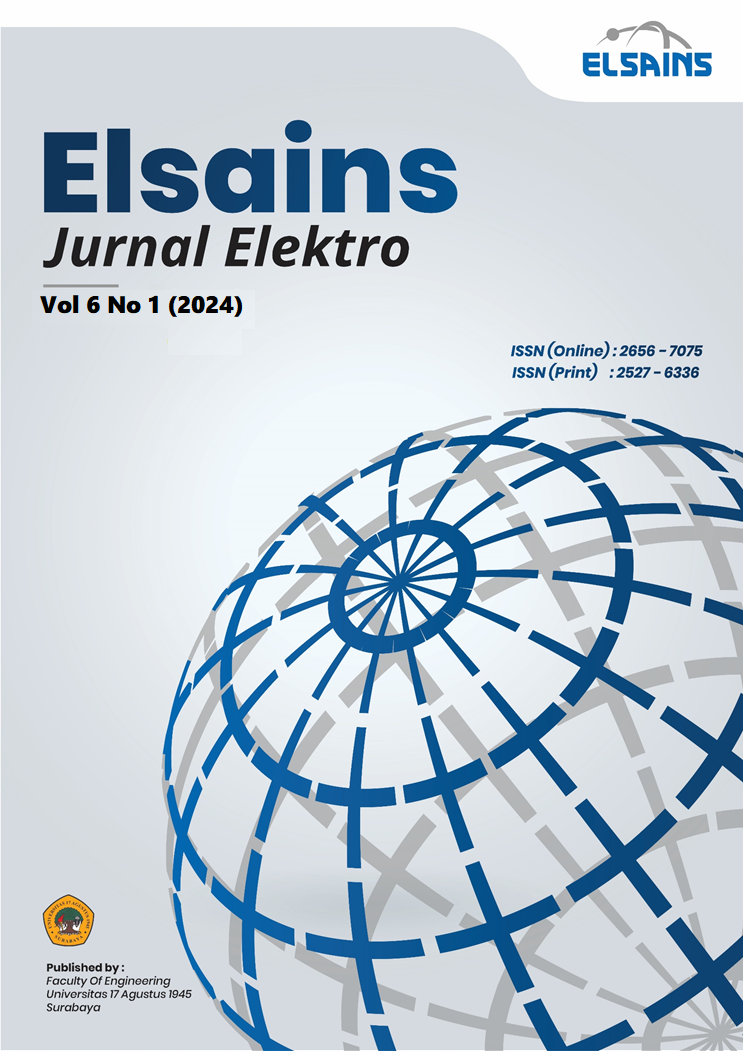Rancang Bangun Kontrol Temperatur Minyak Goreng Berbasis Arduino Dengan Metode PID kontrol
DOI:
https://doi.org/10.30996/elsains.v6i1.11156Abstract
Arduino merupakan modul yang bersifat terbuka (open source) . perangkat ini bisa dikembangkan dengan bermacam-macam sensor dan akuator. contoh pengembangan yang dilakukan oleh penulis yaitu membuat Kontrol temperatur minyak goreng Berbasis arduino dengan menggunakan metode PID kontrol. Penelitian ini menginvestigasi penggunaan PID (Proportional- Integral-Derivative) controller untuk mengatur suhu dalam sistem kontrol arduino Uno dan modul MAX6675 Thermocouple. Penelitian ini menggunakan kompor gas 1 tungku yang di desain pada bagian knob untuk di modifikasi agar dapat dikendalikan oleh servo yang berputar oleh perintah PID. Thermocouple type K akan mengirimkan data suhu, sistem akan menghitung error, proporsional, integral, dan derivative untuk menghasilkan respon closed loop. Tuning pada penelitian ini menggunakan metode ziegler nicols open loop dan menghasilkan parameter KP = 3, KI = 118, KD = 4. Dan didapatkan hasil respon sistem respon sistem terhadap pengaturan temperatur dengan nilai overshoot 5,5174 ,Error steady state 2% dengan waktu Settling time sebesar 576 detik, dan waktu rise time sebesar 105 detik, dan waktu delay time sebesar 23 detik.
Downloads
Downloads
Published
Issue
Section
License
Authors who publish with Elsains: Jurnal Elektro agree to the following terms:
- Authors transfer the copyright and grant the journal right of first publication with the work simultaneously licensed under a Creative Commons Attribution-ShareAlike 4.0 International License.. that allows others to share the work with an acknowledgement of the work's authorship and initial publication in this journal.
- Authors are able to enter into separate, additional contractual arrangements for the non-exclusive distribution of the journal's published version of the work (e.g., post it to an institutional repository or publish it in a book), with an acknowledgement of its initial publication in this journal.
- Authors are permitted and encouraged to post their work online (e.g., in institutional repositories or on their website) prior to and during the submission process, as it can lead to productive exchanges, as well as earlier and greater citation of published work (See The Effect of Open Access)








